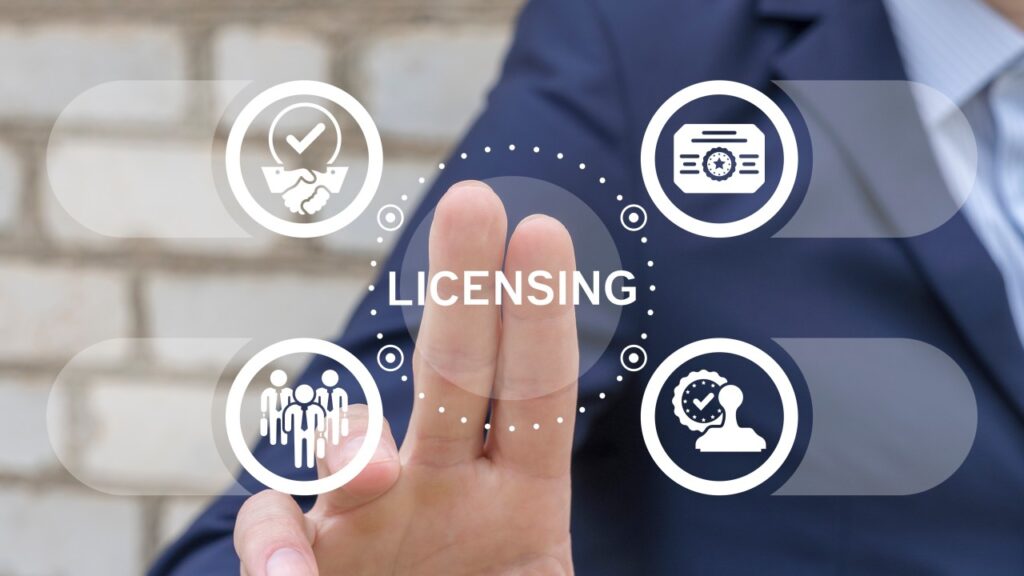If you’ve ever dreamt of launching your own business in Dubai, chances are you’ve been captivated by the glamorous skyline, tax-free benefits, and endless opportunities. Dubai has, without doubt, become one of the most attractive business hubs in the world. But behind every Instagram-worthy office view and high-profile networking event, there’s a layer of reality no one really talks about — the maze of Licensing, visas, and the stress that creeps in when you least expect it.
This isn’t to scare you away. In fact, it’s quite the opposite. It’s a conversation every aspiring entrepreneur deserves to have before signing that lease or wiring that hefty license fee. Because knowing what to expect is half the battle won.
The Dream vs. The Process
Most people arrive in Dubai drawn by stories of overnight successes and millionaire expats. And while those stories do exist, what they often skip is the behind-the-scenes chaos.

Starting a business in Dubai isn’t as simple as walking into a free zone authority and walking out with a license. The process is layered, bureaucratic, and comes with fine print you may not discover until it’s too late.
From choosing the right business activity to selecting a jurisdiction — whether it’s mainland, free zone, or offshore — every decision you make at the beginning impacts how you run your business for years to come.

And here’s a small but powerful secret: most startup headaches don’t come from the business idea failing, they come from paperwork delays, unexpected legal costs, and visa complications.
Choosing the Right Business License — It’s Trickier Than It Sounds
Dubai offers several types of business licenses: commercial, professional, industrial, and tourism, each with specific categories underneath. One of the most common mistakes new entrepreneurs make is choosing a license that only partially covers their actual business activities.
For example, you might think a general trading license covers you to sell products online and import them from abroad, but the fine print may limit the type of goods or sales platforms you can legally operate on.
What nobody tells you is that changing your business activity later isn’t as straightforward as clicking a button. It can cost money, require new approvals, and in some cases, force you to reapply for a new license altogether.
So before you fall in love with your company name and logo, take a deep dive into the specific business activities listed under your desired license. Speak to multiple licensing consultants — not just one — and compare advice. You’ll be surprised how much it differs.

The Visa Process Can Test Your Patience
Dubai’s business visa system is designed to support entrepreneurs, but like most bureaucracies, it moves at its own pace.
After securing your trade license, the next step is applying for your establishment card, followed by your investor or partner visa. This process involves medical tests, Emirates ID applications, and sometimes, inexplicable delays.
What nobody tells you is that visa applications can be rejected for minor clerical errors, or stuck in processing for weeks because a document wasn’t uploaded in the right format.
And while your visa is pending, other parts of your startup life — like opening a bank account or signing rental contracts — can come to a grinding halt. This limbo period is what tests the nerves of even the most optimistic entrepreneurs.
The smartest move? Always allow buffer time in your business launch plan. If your consultant says a visa takes seven working days, assume it might take 14. Plan your cash flow accordingly.
Hidden Costs That Can Drain Your Budget
Most people budget for office rent, marketing, and product inventory. But Dubai’s business environment comes with a host of hidden costs that rarely make it to the startup blogs and pitch decks.
From annual license renewal fees, external approvals for certain business activities, to insurance requirements and mandatory software subscriptions — it all adds up.
Another thing no one tells you is that bank account minimum balance requirements for business accounts can be higher than you expect, and dropping below it invites hefty penalties.
And if you’re thinking about hiring, each employee visa comes with its own fees, medicals, deposits, and sometimes even housing stipends, depending on your industry.
This is where many startups find themselves cash-strapped within the first six months — not because of a lack of clients, but due to a financial plan that didn’t factor in the ‘Dubai extras’.

Startup Stress Is Real — And It’s Different Here
There’s no denying that launching a business anywhere is stressful, but Dubai’s unique mix of high costs, transient population, and constant competition adds an extra layer of pressure.
What nobody tells you is how isolating it can feel when you’re dealing with visa issues, paperwork delays, or a bank account freeze, while the world outside posts sunset yacht parties on Instagram.
Many entrepreneurs here go through what they call ‘the six-month dip’ — a period when the initial excitement wears off, costs climb, and revenue is slower than expected. This is when mental health can take a hit.
The smartest founders build support networks early. Whether it’s through business councils, startup incubators, or casual meetups, surrounding yourself with people who understand Dubai’s specific challenges makes a huge difference.
The Unwritten Rules of Doing Business in Dubai
One of the things that surprises new entrepreneurs is how relationship-driven the business world is in Dubai.
While everything might look formal and process-oriented on paper, many deals, collaborations, and approvals move faster when there’s a personal connection involved.
What nobody tells you is that having coffee with the right person can sometimes speed up a process more effectively than a dozen follow-up emails.
This isn’t about favoritism — it’s about trust. In a city where expats come and go, relationships built on reliability and face-to-face conversations carry more weight than a business plan or website.
Make it a habit to show up at industry events, say yes to casual networking invites, and follow up with a personal note. You’ll be amazed at how doors quietly open.
Is It Still Worth It?
After reading about the licensing headaches, visa delays, and startup stress, you might be wondering if it’s worth launching a business in Dubai at all.
The honest answer? Absolutely — but only if you walk in prepared.
Because for all its challenges, Dubai still offers unparalleled access to international markets, tax benefits, world-class infrastructure, and a diverse talent pool. The opportunities here are real and rewarding, but they favor those who’ve done their homework.
Entrepreneurs who succeed in Dubai aren’t just the ones with the best ideas. They’re the ones who understand how to navigate paperwork, manage cash flow against surprise costs, and stay mentally resilient through the dips.

Final Thoughts
If you’re considering starting a business in Dubai, take this as your unfiltered briefing. There’s no shortage of glossy success stories, but what truly empowers you is understanding the hurdles and planning for them.
Get clear on your licensing, double-check your business activities, over-budget for hidden fees, build a network early, and be patient with the visa process.
Startup life in Dubai isn’t a straight road — it’s a winding path with breathtaking views and the occasional pothole. But if you’re aware of what’s coming, you’ll be far better equipped to navigate it, and eventually, to thrive.
And perhaps most importantly, remember that behind every sleek office launch and successful venture is an entrepreneur who faced the same frustrations, questioned their decision a dozen times, and kept going anyway.
That’s the real story nobody tells you — and the one worth living.
Do follow UAE Stories on Instagram
Why Your Startup Pitch Keeps Getting Ignored — and How to Fix It













